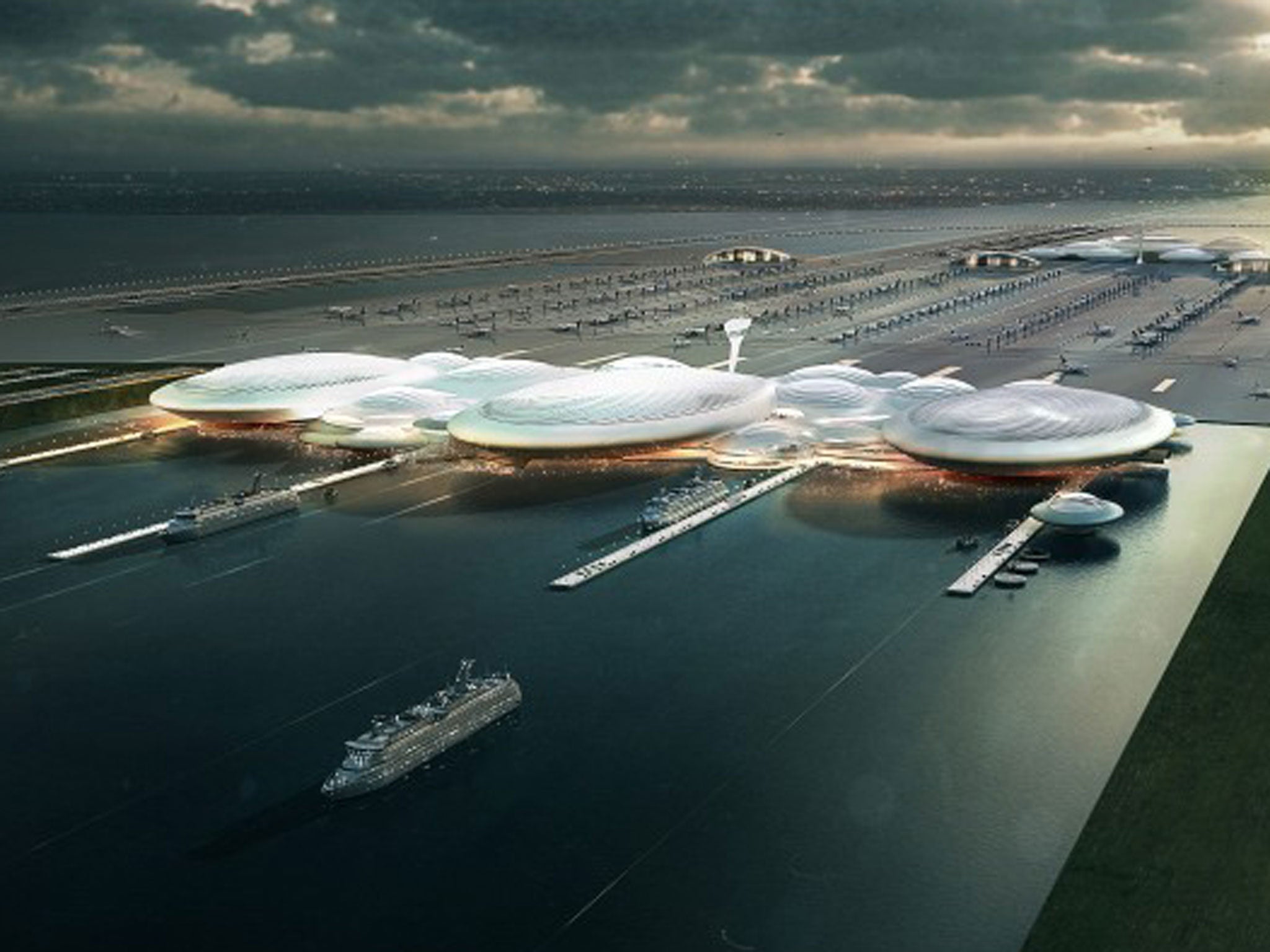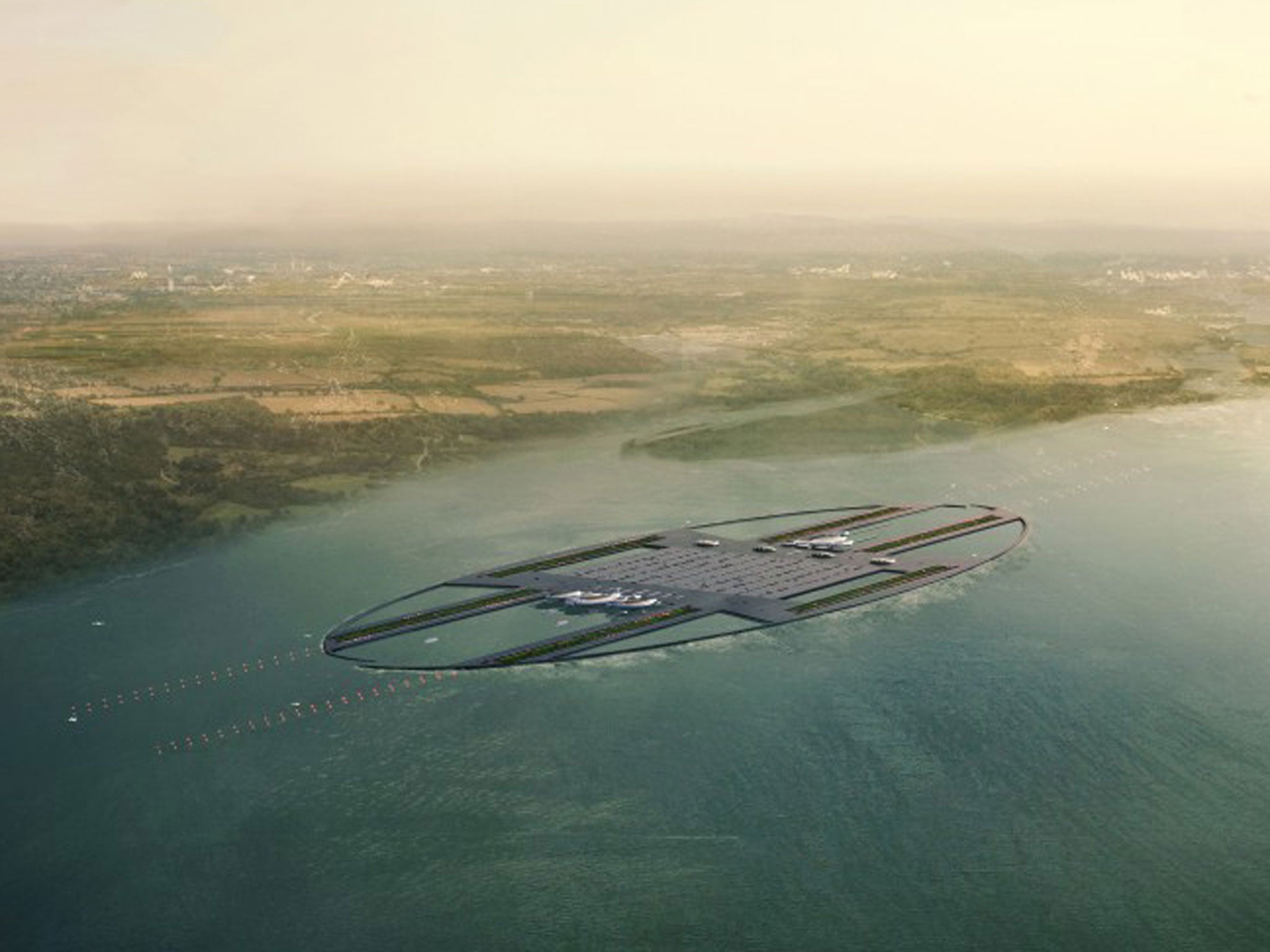'Boris Island' design plans: Pictures of proposals for London airport revealed
Consortium Testrad say the design could be built within seven years

Designs for 'Boris Island', the proposed multi-billion pound London airport in the Thames estuary have been revealed by Testrad, the consortium behind the project.
The proposed six-runway airport championed by London mayor Boris Johnson would cost £47.3billion to build and would stretch out into the Thames.
Testrad say the London Britannia Airport could be built within the next seven years and the island-based design, consisting of terminals built on reclaimed land, would avoid issues involved with other land based developments.
Some of these problems they believe their design would avoid include demolishing houses and industrial infrastructure, and removing green airfield sites.
In their plans unveiled to a conference the House of Lords yesterday, the consortium say: "This £47bn investment will reverse the polarity of London and facilitate regeneration of the Thames Gateway National Priority Area.
"Employment opportunities in service, technology, engineering and myriad other industries will grow to serve existing historic Thames Estuary communities, and boost the regeneration of inner East London."
A spokesperson also told the BBC that the design would avoid flying over densely populated areas of London and the South East, "removing completely the noise contours and impact which have bedevilled millions of people throughout and around London over the past 40 years”.

Testrad said Heathrow may have to close if such an airport was opened, but they would be offering new opportunities for housing and employment, and the £47b cost would be made back from the sale of land and Heathrow closure.
The unveiling of their plans comes as the Davies Airport Commission continues to review potential sites for airport capacity in the South East, such as additional runways at existing airports, according to the BBC.
Join our commenting forum
Join thought-provoking conversations, follow other Independent readers and see their replies
Comments
Bookmark popover
Removed from bookmarks